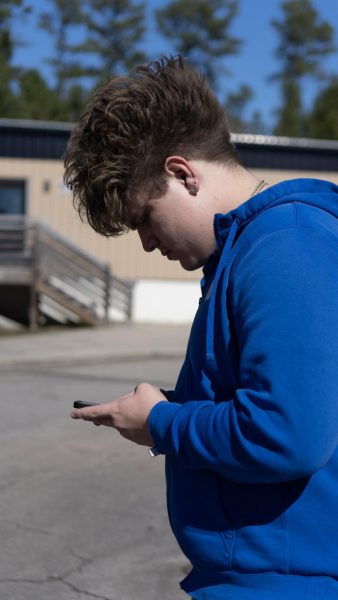Book Review Series Part 1: Scythe by Neal Shusterman
Scythe by Neal Shusterman
Overall rating: 4 out of 5 stars
Categorized as a YA speculative fiction novel, Scythe by Neal Shusterman was awarded a Printz Honor Award (Michael L. Printz) in 2017, an award granted to books that represent the “best writing in YA literature”. I decided to borrow Scythe from my school’s public library generally to see if the novel fit its recognition.
After all, the book’s concept seemed fresh; it was set in a futuristic world where tragedies such as hunger, disease, and war were extinct, and so was the reality of death itself. In Shusterman’s Earth, humans had reached the height of their technological advancements. Essentials such as food, shelter, and money was guaranteed to all inhabitants, and jobs were nothing more than something to pass the time. The government system had entirely stepped down, and replacing it was an AI-type knowledge database called the Thundercloud. Through the years, humans had achieved immortality, and the world was as perfect as it could get — minus the threat of overpopulation. To prevent it, only people ordained as ‘scythes’ could take lives and control the population, and that is where the plot of Scythe begins.
Scythes in the novel’s setting of MidMerica are treated like royalty, and their job is to “glean” people; every year, they are required to fit a certain quota of people to make the process a fair one. In the first fifty pages of the book, lawful Scythe Faraday chooses head-strong, perceptive teenagers Citra Terranova and Rowan Damisch as his apprentices — and both don’t want to be; at the end of their training, one of them is to succeed and be ordained as a scythe, while the other is to return to their normal life.
Life with Scythe Faraday lasts about one-fourth of the novel and is all about rules and morals; Rowan and Citra learn ways to glean through weapon-wielding and various martial arts, as well as learn how to make the process honorable. They grant “immunity” to a gleaned’s loved ones and seek forgiveness if need be, and they are taught never to forsake a human life. Citra and Rowan themselves make a mismatched pair, but get along quite well within Scythe Faraday’s household.
Then, the tone of the novel abruptly changes when Scythe Faraday commits suicide and Rowan and Citra are separated, taken by completely different mentors. Scythe Curie, Citra’s mentor, is much like Scythe Faraday — fair and calm — while Scythe Goddard, Rowan’s new instructor, is an egotistical party type, obsessed with the idea of a ‘new-age’ scythedom. Darkness is prevalent in their seemingly utopian society as the appearance of more radical scythes become more popular, and Rowan is mentored under the most radical of them all.
Things don’t get any easier when Citra begings to suspect that Scythe Faraday’s death may have been a murder, and that she and Rowan would have to fight to death to obtain the position of a scythe — something that they have come to believe isn’t such a job worth having after all.
Scythe dives into many of the moral aspects of the fictional concept of “gleaning”, and is told in the POVs of both Citra and Rowan. Their individual struggle with the question, “How fair can killing be, and how can I make it fair?” is one that is focused on throughout the book, shown mostly through internal monologuing and rhetorical questions. Overall, Scythe is a slow burn novel but never ceases to be thought-provoking, playing out like a long, PG Black Mirror episode. The young protagonists, pitted against each other, are easy to root for and have believable motives. The only issue I had found while reading was that at times, it was a bit too slow, but it is usually sped up with a surprising twist, never failing to keep me interested. The author is a master of dialogue and a skillful writer, balancing wit and angst perfectly.
The novel gets unapologetically gritty, and it has taught me a lot more than what I was expecting, especially considering our present world’s technological advances in food production and genetic engineering. There has always been controversy surrounding these topics, and seeing it played out in Scythe as a benefit for humans made me question whether it truly is a “benefit” at all. Our world is still plagued with tragedies that Shusterman’s world had solved, including mortality — but is immortality itself really an advantage, especially at the risk of overpopulation? And if immortality is achieved, can humankind really be trusted with taking lives at their own will, or will we end up right back to the brink of civil warfare, resetting from stage one?
While Neal Shusterman’s novel is not exactly a beach read, I would recommend it to anyone looking for something that will keep them up at night — as that is exactly what Scythe did for me.









